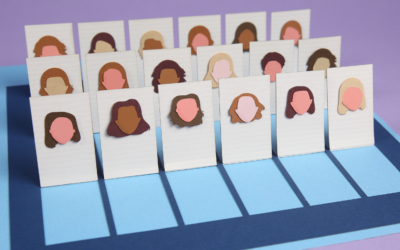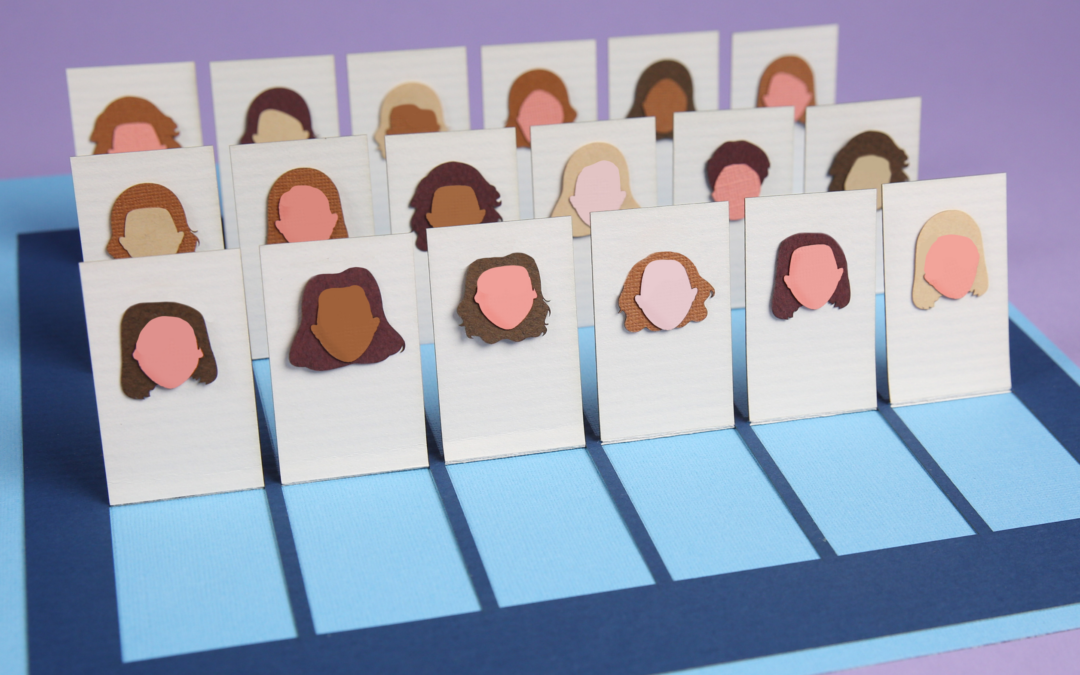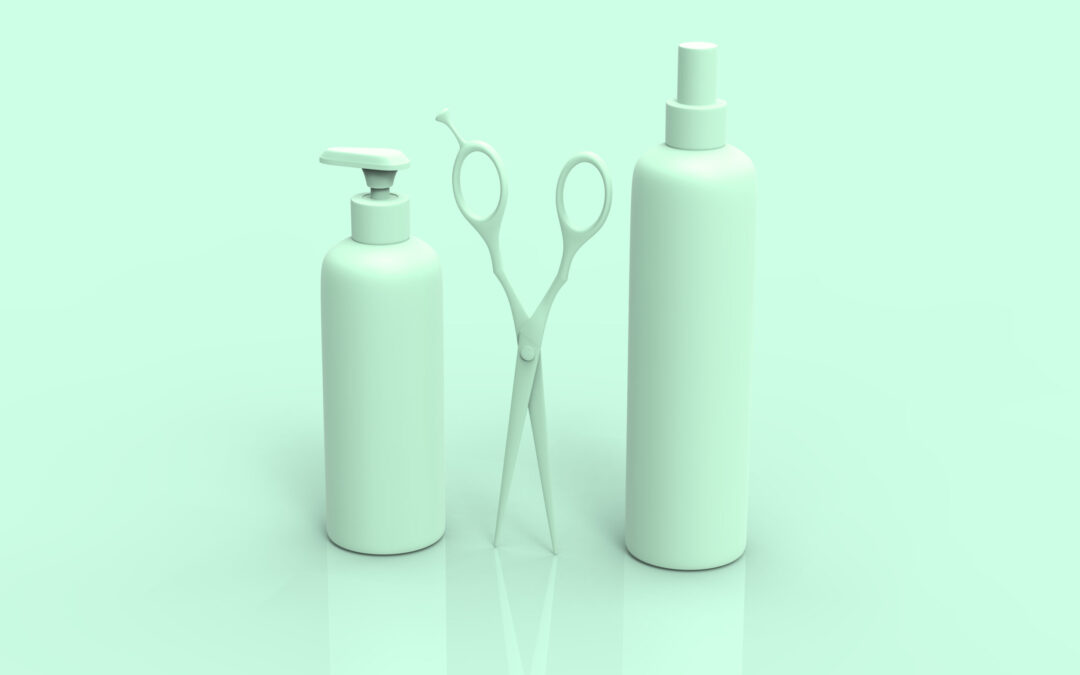Can Pregnancy Cause Hair Loss?
Between 40% and 50% of women experience hair loss during or after pregnancy. You’re not alone. Your body is changing and your hair might change with it. It might grow stronger and thicker. It might grow curlier or straighter. Or it might thin out. For most women, the hair loss comes after childbirth and is common enough to have a name: postpartum hair loss. But a small number of women will experience hair loss during pregnancy, usually around the third trimester. Either way, pregnancy hair loss is usually temporary. By the time baby’s first birthday rolls around, your hair should naturally return to normal. If it hasn’t, there’s a chance something else is happening. It might be time to consult your doctor to find out if there’s another cause for hair loss, like androgenetic alopecia. But let’s not get ahead of ourselves. Let’s take a look at why you might experience hair loss during pregnancy or after it — and what actions you can take to speed up recovery.
What Causes Hair Loss During Pregnancy?
If you’re pregnant, or you’ve just given birth, and more hair is shedding than you’re used to, you may have telogen effluvium. Telogen effluvium is a type of hair loss that can be triggered by a stressful event. And let’s not beat about the bush. Pregnancy can be stressful. It is also known to co-present with the more common androgenetic alopecia. Your hormones are shifting. Your body is changing to accommodate a new life. (Let’s not get started on the act of childbirth.) In most cases, changing hormones trigger pregnancy hair loss. But there may be another underlying cause. So let’s look at some of the most common causes of hair loss during pregnancy.
Hormonal Changes
The hormonal changes that happen at the beginning of your pregnancy can send your body into shock. Most women experience a surge in oestrogen (a hormone that stimulates hair follicles and often results in MORE hair growth during pregnancy — more on that below). But some women will experience a decrease in oestrogen, usually caused by:
- going off the oral contraceptive pill
- experiencing a hormonal imbalance during pregnancy
- experiencing an abortion, miscarriage, or stillbirth
Any oestrogen imbalance might trigger telogen effluvium. A small number of women experience telogen effluvium during pregnancy. The condition typically sends about 30% (or more) of your hair into a premature resting phase of the hair growth cycle. This hair will then shed. But the shedding isn’t always immediately noticeable. It may take 2-4 months after the triggering event (typically the first trimester) for you to notice any thinning. It’s nothing to worry about. The hair loss doesn’t usually last longer than 6 months and it can reverse after the stress is resolved.
Thyroid Imbalance
Hair loss during pregnancy may be a sign of a thyroid problem. A change in thyroid hormones during pregnancy can trigger a thyroid disorder, such as an overactive thyroid (hyperthyroidism) or an underactive thyroid (hypothyroidism). Hypothyroidism affects up to 3% of women during early pregnancy and between 5% and 10% of women after childbirth. Symptoms other than hair loss include:
- Sensitivity to cold
- Weight gain
- Constipation
- Muscle cramps
- Intense fatigue
A doctor can order a blood test to determine if you have a thyroid problem and provide you with a range of treatment options.
Iron Deficiency
Your body always needs iron. The mineral creates the red blood cells that transport oxygen throughout your body. If you don’t have enough iron, you don’t have enough red blood cells and you develop anaemia. When you’re pregnant, you’re sharing your blood and oxygen supply with a growing foetus. So it’s fairly common for pregnant women to develop a mild iron deficiency, especially during the second and third trimesters. You have an even higher risk of developing iron-deficiency anaemia if you:
- are carrying more than one foetus
- have severe morning sickness
- got pregnant soon after giving birth
Hair loss is one possible symptom of iron-deficiency anaemia. These are the other common symptoms:
- Fatigue
- Chest pain
- Headaches
- Fast or irregular heartbeat
- Shortness of breath
If you develop anaemia, you may need to take iron supplements to restore balance. It’s best to consult a medical professional to diagnose the anaemia and offer treatment options. Once you start treatment and your iron levels are restored, your hair usually returns to its normal thickness.
Other Underlying Health Conditions
A range of reproductive health conditions may arise during pregnancy. Any one of these conditions can be enough to cause the type of stress that triggers telogen effluvium. Such conditions include:
- High blood pressure
- Gestational diabetes
- Hyperemesis gravidarum
If you’re concerned about your hair loss or you’re experiencing other symptoms, it’s best to consult your doctor as soon as possible to rule out these underlying causes.
Post Pregnancy Hair Loss
Hair loss during pregnancy does happen but it’s rare. Hair loss after pregnancy is far more common and nothing to worry about — even if it feels extreme. Because here’s the deal. It’s not actually hair loss. It’s excessive hair shedding. We’ll get into that below. This excessive shedding generally peaks at about 4 months after giving birth. After that, new hair will begin to grow, eventually restoring your hair to its natural hirsute state.
What Causes Hair Loss After Pregnancy?
Your hair follows a natural growth cycle. Each individual strand grows for years before resting for 2-3 months and then falling out (to be replaced with new hair). Every strand is at a different stage in the cycle at any given time. But when you become pregnant, your hormones shift (hello oestrogen!) and your hair growth cycle changes. This change usually means that hairs stay in the growing phase longer, so less hair falls out than usual. That results in thicker hair at roughly the 15-week mark. But the celebrations are short-lived. Once you’ve given birth, those hormonal levels plunge back to pre-pregnant levels. The extra hair you’ve enjoyed throughout your pregnancy enters the resting phase of the hair growth cycle. That means more hair than you’re used to will start to fall out. It can feel like a hair-raisingly excessive amount of shedding. But just remember: You’re not losing more hair than you had before your pregnancy. Your body is just returning to its pre-preggo levels. Your hair growth cycle will have returned to normal when you’re lighting the candle on baby’s first birthday cake.
How to Treat Hair Loss After Pregnancy?
For most women, your hair will right itself after pregnancy. You won’t need to do anything except be patient. If, after a year, you’re still experiencing hair loss, it might be time to speak to a doctor who can diagnose the underlying cause and suggest possible treatment options. Let’s take a look at what you can do for hair loss after pregnancy.
Minoxidil
Minoxidil is a common hair loss treatment for women but it’s not considered safe for women who are pregnant or breastfeeding. If your hair hasn’t returned to its pre-pregnancy state and you’ve finished breastfeeding, it might be a treatment option for you.
Low-Level Laser Therapy (LLLT)
LLLT uses red light waves to stimulate hair growth and is safer than certain medications if you’re pregnant or breastfeeding.
Scalp Massage
Why not treat yourself to a scalp massage? It will promote blood circulation, which can stimulate your hair follicles and promote hair regrowth.
The Hairy Pill®
The Hairy Pill® is a women’s hair loss treatment for when you’ve had your child and stopped breastfeeding. It contains underlying technology invented by world-renowned dermatologist Professor Rodney Sinclair. And unlike other hair growth treatments, it’s entirely personalised to you. The Hairy Pill® contains active ingredients that can help prevent your hair from falling out and stimulate your hair to regrow. It also contains the vitamins, essential elements, and amino acids your body specifically needs. Learn more about how it works.
Prescription Hair Loss Treatment & How It Works
The Hairy Pill® provides access to a prescription hair loss treatment but you won’t need to drive to the doctor, sit around in the waiting room, and then take your prescription to the pharmacist. You can get your personalised treatment in under 5 minutes. Just fill out our online form and the treatment will be delivered to you. Learn more about the simple process now.





